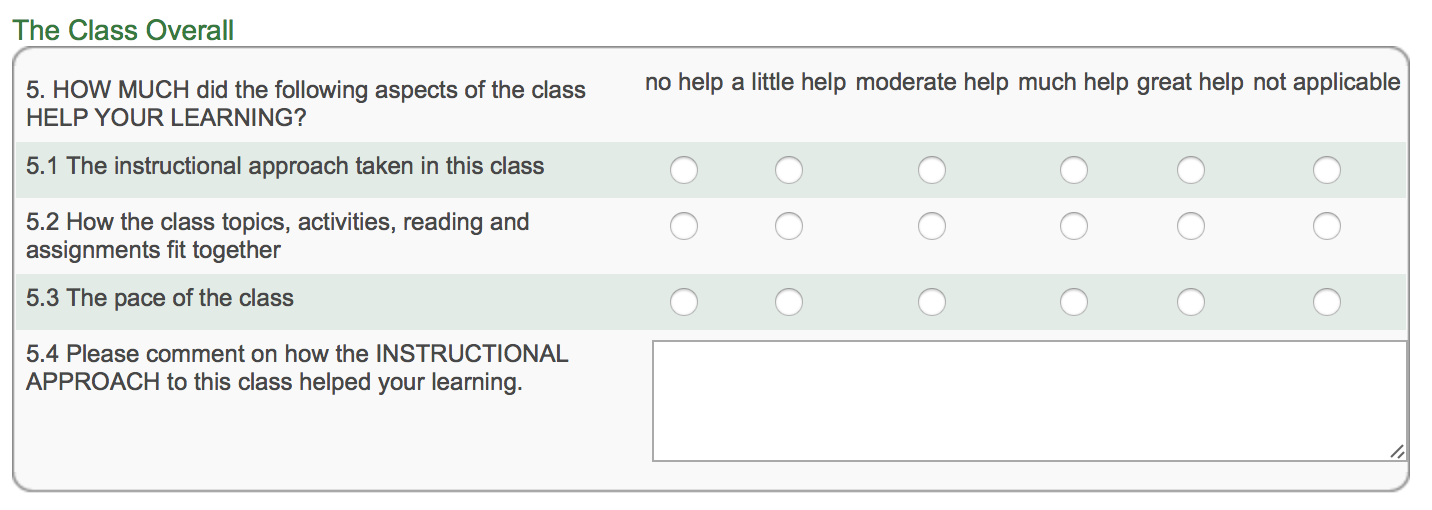Developed by Elaine Seymour, Stephen Carroll, and Tim Weston
| Purpose | To understand students’ self-assessment of their learning from different aspects of the course and their gains in skills, attitudes, understanding of concepts, and integrating information. |
|---|---|
| Format | Agree/disagree |
| Duration | 10-15 min |
| Focus | Beliefs / Attitudes (How aspects of the course helped learning, What gains in skills attitudes understanding of concepts and integrating information did students make.) |
| Level | Intro college |
Example questions from the SALG. Instructors can edit the content of questions, choose which to include, create their own questions and change the order.

E. Seymour, D. Wiese, A. Hunter, S. Daffinrud, Creating a Better Mousetrap: On-line student assessment of their learning gains, National Meeting of the American Chemical Society, 1–40 (2000).
more details
This is the second highest level of research validation, corresponding to at least 5 of the validation categories below.
Research Validation Summary
Based on Research Into:
- Student thinking
Studied Using:
- Student interviews
- Expert review
- Appropriate statistical analysis
Research Conducted:
- At multiple institutions
- By multiple research groups
- Peer-reviewed publication
The SALG was developed based on over 300 student interviews where researchers found that students were effective at self-reporting on what they had gained from certain aspects of a course, but not what they liked. The first version of the SALG was tested in 14 courses at 8 institutions, and revised. The SALG was converted to a web-based assessment, and 30 faculty in a wide variety of disciplines used it and provided feedback. The SALG was revised in 2007, to be applicable to all disciplines and many pedagogies. The SALG has been used by over 18000 instructors and they have collected over 38000 student responses. Results are published in one conference proceeding.
References
- K. Scholl and H. M. Olsen, Measuring Student Learning Outcomes Using the SALG Instrument, SCHOLE: A Journal of Leisure Studies and Recreation Education 29 (1) 37-50 (2018).
- E. Seymour, D. Wiese, A. Hunter, and S. Daffinrud, Creating a Better Mousetrap: On-line Student Assessment of their Learning Gains, presented at the National Meeting of the American Chemical Society, San Francisco, CA, 2000.
We don't have any translations of this assessment yet.
If you know of a translation that we don't have yet, or if you would like to translate this assessment, please contact us!
The most recent version of the SALG, version 3, was released in 2007, and was revised to be appropriate for any discipline and a wide range of pedagogies. The original version of the SALG, version 1, was released in 1997, and was developed to be used in an introductory chemistry context. Since instructors can add/delete questions and edit the questions, each instructor uses a unique version of the SALG.



